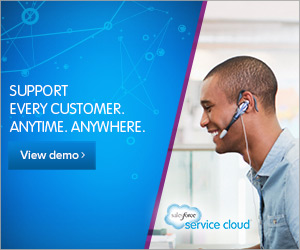
Image from http://www.morguefile.com/archive/display/24997
Over the years SAP has become the business intelligence suite of choice for the intelligent enterprise. The reasons companies choose SAP vary from organization to organization, but ease of use and custom-tailored support to eleven specific lines of business and 24 specific industries are probably among the most prevalent.
SAP also offers painless upgrades and the ability to minimize the risk that stems from adopting new technologies.
From the user point of view, SAP shines in decision support, allowing fast and easy access to exactly the information that is needed, when it is needed. SAP allows enterprises to collaborate more easily, both inside and outside of the organization. Whether the organization is in the sales, finance, sustainability or manufacturing field, SAP can deliver process alignment, improved efficiency and better information and resource sharing not only within the organization itself, but also with its vendors and partners.
SAP’s ability to provide global integration of very large networks on a human level, automatically overcoming differences in language and currency that might otherwise prove a barrier to communication, is one of the most important reasons companies choose SAP. Also, since SAP provides information to users in real time, the risk of error is reduced and employees’ work environment is more efficient.
Information technology personnel like the ability to perform a single update and see it implemented throughout the enterprise, and as an established and tested technology, SAP offers the benefit of a rich and robust ecosystem of partners and vendors with extensive experience in enterprise SAP implementation.
Since SAP is built on a deep understanding of the specific needs of a given industry, and incorporates accepted best practices into its systems, it provides a robust framework for process change and improvement. The insight it provides into enterprise needs allows consolidation of purchase decisions, potentially opening up economies of scale that were not previously available. Similarly, the insight it allows into the manufacturing process allows far more accurate estimates both of costs and of projected completion dates, which may well translate to a competitive advantage.
The ability to incorporate a number of platforms and device types is also a strong point. SAP makes it possible to process customer input from a retail kiosk in real time, and to automate order handling. This makes information about order fulfillment available to the handheld devices of an organization’s sales personnel and account executives. In many cases SAP replaces a patchwork of older systems that were designed on an ad hoc basis to begin with, in hopes they would fill some long-gone need, but which have long since crossed over the line from disparate into dysfunctional.
This potential to drive a process that makes enterprise architecture more rational and its information technology systems more integrated may in fact be the best of the reasons companies choose SAP. It is simply one of the most powerful and sophisticated business integration tools on the market.
Craig Shaneck writes for grom.com and if you’re interested in finding out more about SAP he recommends you read the GROM blog.













